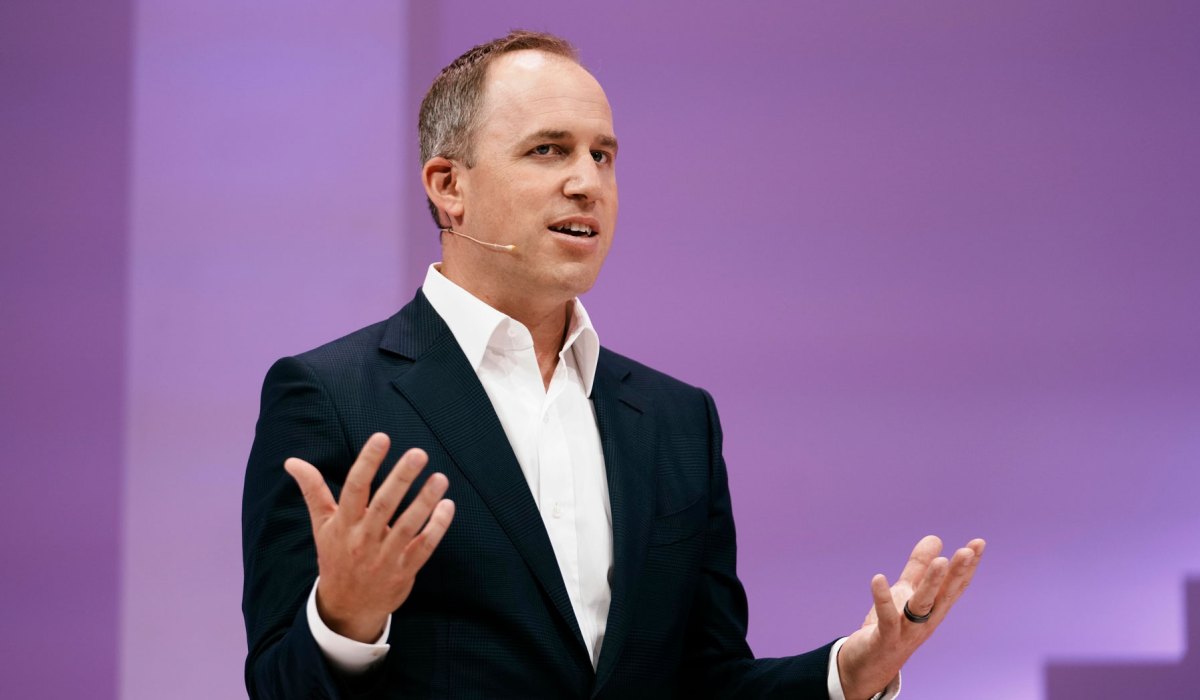The advancement of Artificial Intelligence (AI) has been remarkable and growing at an unprecedented pace. In recent years, the financial advising industry has seen some of the most significant breakthroughs, with AI-driven investment tools becoming increasingly popular. According to Deloitte, these tools are expected to be the primary source of advice for retail investors by 2027, with their adoption reaching nearly 80% by 2028. However, with this rapid shift comes the question – can AI replace human wealth managers, or does personalized wealth management still require a human touch?
Understanding the role of AI in wealth management can help you clarify its benefits, limitations, and overall impact on the industry. It can also help you decide if you can rely on it solely or need to hire a financial advisor.
AI and wealth management – Understanding the impact
1. Provides simplified, quick and efficient solutions
AI-managed assets are projected to reach nearly $6 trillion by 2027. What initially began as simple robo-advisors offering basic portfolio recommendations and investment management has now evolved into an advanced system that is capable of handling multiple, complex financial tasks. AI offers remarkable precision and is no longer limited to suggesting funds or rebalancing portfolios. It has become an essential tool that can process large amounts of financial data quickly and efficiently. This has helped both investors and financial advisors make well-informed decisions.
One of the most significant advantages of AI in wealth management is its ability to simplify financial analysis. Traditionally, investors and wealth managers had to go through massive amounts of financial data, including market trends, performance reports, historical price movements, inflation rates and more, to make sound investment choices. AI has streamlined this process by quickly analyzing such data. AI tools can identify key insights and considerably reduce the time and effort required to assess potential risks and opportunities. Moreover, AI also possesses machine learning capabilities through which it does not just analyze current data. It can simply learn from past market behavior to recognize patterns in the future. It can anticipate potential events, such as price fluctuations and predict market trends so that investors can react proactively. This helps reduce potential losses and maximizes returns.
AI also plays a crucial role in simplifying the administrative aspects of wealth management. There are multiple uses of AI for financial advisors and firms. Instead of having to deal with emails and other forms of correspondence, which can be time-consuming to manage manually, financial advisors can rely on AI tools. AI offers automation, and this automated financial planning helps firms eliminate manual tasks like drafting emails and organizing client meet-ups. This ultimately allows financial advisors and wealth managers to focus more on the client’s needs with strategic planning and personalized wealth management. In a world where professionals are often overworked and struggling to manage multiple responsibilities, AI helps cut the workload significantly.
2. Offers improved customer service with client-centric tools
The impact of AI is also evident in customer service. AI-powered chatbots are changing how clients access financial support. Chatbots offer 24/7 assistance and instant advice for multiple, complex queries. These chatbots can be accessed from smartphones, offering financial advice on the go. Instead of having to wait to speak with a financial advisor or search the Internet for generic advice, investors can now get personalized wealth management through AI tools. This seamless accessibility improves customer satisfaction and enhances the overall client experience. Additionally, chatbots also free up time for financial advisors, as they can leave many of their tasks to these tools, which allows them to dedicate more time to their clients.
Moreover, through machine learning, AI tools can improve their services over time. AI can rely on machine learning to constantly better itself and provide more tailored investment suggestions that are customized to the client’s needs. AI is also expected to become more advanced in the years to come, which can result in an even more personalized experience for investors that aligns with their financial goals, risk tolerance, and investment preferences.
Is AI money management better than working with a wealth manager or financial advisor?
The transition from manual services to technology-driven solutions often feels like a challenge at first. Having said that, while advancements in technology have simplified and improved many aspects of finance, there are still areas where human interactions hold a clear advantage. Here’s why:
1. Human financial advisors present fewer risks than AI tools
AI-driven wealth management tools must comply with financial regulations, such as the Securities and Exchange Commission (SEC) guidelines in the U.S., to ensure that they operate within legal frameworks. However, despite these regulatory safeguards, AI may still present certain financial risks. Unlike human financial advisors, AI operates based on pre-programmed data and machine learning models, which may not always capture the full complexity of financial markets or individual client needs.
On the other hand, human financial advisors undergo rigorous training. They must qualify for examinations and possess numerous certifications before they are allowed to work professionally. Many wealth managers and financial advisors are also fiduciaries, which makes them legally bound to act in the best interests of their clients. AI tools may not always offer this level of accountability. Investors who are unfamiliar with AI-driven platforms may struggle to differentiate between legitimate and fake tools, which can increase the risk of financial fraud. The Internet is an open world. How do you know the AI-driven wealth management tool you are using is actually SEC-approved and not a scam operating from some unknown location? With AI-based financial tools readily available online, investors must be extra cautious.
AI for wealth management relies on historical data and algorithms. While it can process vast amounts of information, it may not always react well to sudden market changes. An unprecedented political shift, global pandemic, natural disaster, etc., can disrupt the market. Human advisors have experience and the ability to assess how these events affect economic conditions. This helps them provide you with more nuanced recommendations.
2. Human financial advisors possess emotional intelligence
Emotions play a considerable role in finance in two major ways. First, an investor’s emotions often influence their investment decisions. For example, greed can push you to make riskier choices in the hope of higher returns. Fear can prevent you from taking any action, which can lead to missed opportunities that could have resulted in profits. Anxiety can push you to sell too soon, which may lead to losses. These emotional responses often lead to impulsive reactions and decisions that may not align with your long-term goals.
The second way emotions impact finance is through the emotional intelligence that a human, financial advisor brings to the table. Unlike AI-assisted tools, human financial advisors can recognize and respond to a client’s fears as well as aspirations. Financial decisions can be deeply personal and, in many cases, even tied to major life events. For example, buying a home, planning for a child’s education, or preparing for retirement are deeply personal milestones that affect your state of mind as much as they impact your financial situation. Your emotional intelligence affects your financial choices. Say you lose your job or face a family emergency. In such cases, an AI tool may suggest a logical strategy based on algorithms, but it cannot understand the deeper emotional and psychological aspects of the situation. A human advisor, on the other hand, can offer tailored advice with empathy. In these moments, having a financial advisor who understands your emotions can make a significant difference.
Human advisors can provide reassurance and guidance that goes beyond data-driven recommendations. They can help clients stay focused on their financial goals and not get perturbed by short-term events. While AI can analyze past trends and suggest suitable adjustments, it cannot provide the empathy and trust that come from a direct conversation with a knowledgeable and experienced financial advisor. Another facet to consider is the human need for social interaction. While AI tools can offer speed, efficiency, and ease, there is a fundamental question of how much people can truly disconnect from human interactions in financial matters. Many investors, especially those new to wealth management, may find direct conversations with a human advisor more reassuring. A personal connection can make financial planning less intimidating and help clients feel more confident in their decisions.
3. Human advisors can help with overlapping financial goals
Financial planning is rarely a straight, predictable path. It is dynamic, fluid, and constantly evolving. A decision you make for a particular financial goal can have a ripple effect on other areas of your financial life. Financial planning is often interconnected, which makes it essential to take a holistic approach. This is something that human financial advisors excel at.
Let’s take retirement planning, for example. It is not just about saving enough money to sustain a comfortable life post-retirement. It also directly impacts estate planning. Your financial decisions, such as how much to withdraw, how to invest during retirement, and what assets to preserve, will determine how much wealth you can leave behind for your heirs. Similarly, buying a home is not just about property ownership. It can also affect debt management. If you take on a mortgage, you will have to adjust your other financial priorities. If not, the loan repayments could negatively impact your education savings or emergency funds.
When multiple financial goals overlap, a rigid approach does not work. AI-driven tools can certainly provide recommendations based on data, but they may not always recognize the full complexity of these interwoven financial decisions. A human advisor, on the other hand, can step in to offer personalized guidance by taking into account multiple goals, the timeline for each, and how they interact with one another. For instance, an AI tool might suggest maximizing your 401(k) contributions based on your age, income and expenses, and the prevailing contribution limits and rules. However, a human financial advisor might recognize that the same person is also saving for their child’s college education and managing a home loan. Instead of blindly following a single strategy, a human financial advisor can help create a flexible plan that focuses on each goal based on its urgency and timeline.
So, what should you choose – personalized wealth management with a financial advisor or AI-driven financial tools?
As technology advances and new AI-driven financial tools come into the market, it is natural for people to be drawn to them. These tools can serve as a great starting point, especially for beginners or those curious to explore automated financial planning. They can also be useful for handling specific financial needs, particularly for those with busy schedules. If you are curious about AI-powered wealth management, there is no harm in exploring it. You can use these tools to automate certain financial tasks or track your investments, especially if you have a busy schedule and need assistance with time-consuming aspects of financial planning.
However, if you are serious about wealth management and need a structured, personalized approach, a human financial advisor may be the better choice. They offer tailored advice, efficiency, and understanding, which AI tools may lack. While AI-based platforms are becoming increasingly user-friendly, not everyone prefers handling their finances through digital tools alone. If you value personal guidance and a relationship with someone who understands your financial journey, then working with a financial advisor may be a better fit.
To conclude
The role of AI in wealth management is evolving rapidly, and it will continue to change in the future. There may come a time when AI can fully replace human financial advisors and wealth managers, but that time has not arrived yet. For now, there is still a gap that needs to be bridged by human advisors. Their ability to provide personalized financial strategies, emotional intelligence, and accountability in complex financial situations keeps them in the lead.
Use the WiserAdvisor free advisor match tool to get matched with experienced financial advisors who can provide personalized financial strategies on how to build and preserve your wealth. Answer a few simple questions and get matched with 2 to 3 vetted financial advisors based on your requirements.



























